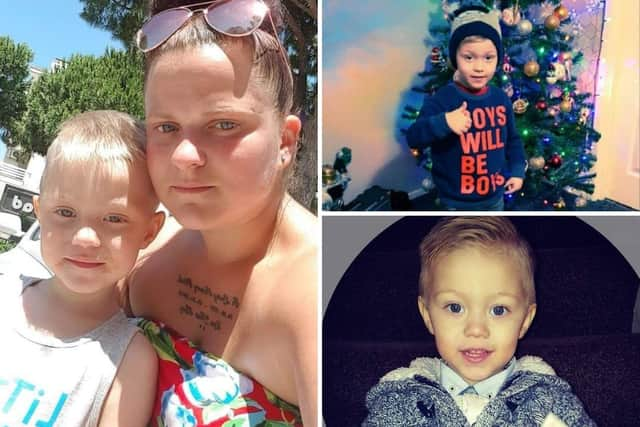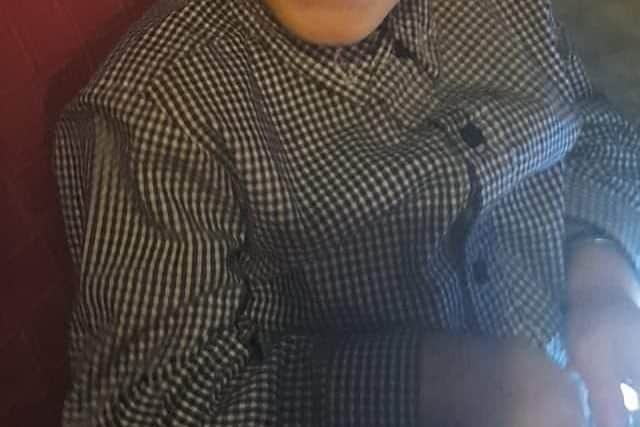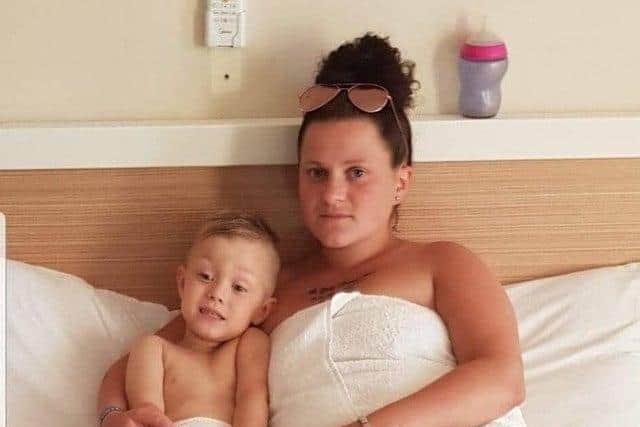Four opportunities to treat tragic four-year-old were missed, inquest is told
and live on Freeview channel 276
Sheldon Gary Farnell died at Sunderland Royal Hospital on Monday, November 26, – almost three days after mum Katrina Keegan took him to hospital when he was feeling unwell.
During the second day of inquest proceedings, the heartbroken mum asked if there was a cut off point where had Sheldon received treatment he would have survived.
Advertisement
Hide AdAdvertisement
Hide AdExpert witness, microbiologist Dr Michael Rothburn, said Sheldon would have survived had he received antibiotics when blood test results confirmed bacteria Group A streptococcus was in his bloodstream.


Dr Rothburn told the inquest jury at Durham Redhills it is difficult to point to an exact cut off time but said: "I can say there would have been survival around the time of discharge and we can extend that…There would have been survival if there would have been treatment by mid afternoon."
A second expert witness, Dr Nelly Ninis, a paediatric consultant who has been involved in the development of NICE guidelines around sepsis, echoed this while giving her evidence on Tuesday, March 16.
She said: “Had [Sheldon] managed to be recalled or had he not left the hospital and had he received intravenous antibiotics I think this whole thing would have been stopped dead in its tracks before the onset of septic shock.”


Advertisement
Hide AdAdvertisement
Hide AdThe inquest has previously heard that the family had left the hospital by the time blood test results were confirmed and that repeated attempts to contact the family had failed.
Dr Ninis told the inquest on Tuesday that medical staff missed four opportunities to start intravenous antibiotics – three being during his stay in hospital.
In part of her statement read out by senior coroner Derek Winter, Dr Ninis said the treatment was “illogical” and “not in line with usual paediatric practice”.
She said: "The trust's protocols and guidelines are not up to date. There were four clear opportunities to start intravenous antibiotics.”


Advertisement
Hide AdAdvertisement
Hide AdGiving evidence on Tuesday, March 16, Dr Niresha Sirinanda, a senior paediatric trainee at the time, said that just 15 minutes after Sheldon and his family left hospital, she received a telephone call from microbiologist Dr Christopher Settle confirming the bacteria.
Dr Sirinanda told the coroner’s court she didn’t think it was ‘urgent at the time’.
She said: “He thought it was genuine but he suggest oral amoxicillin but there was no urgency so in my mind, because he’s more of an expert in this field, this could be the right option.”
The jury heard that after speaking to Dr Geoffery Lawson – the doctor who had discharged Sheldon – Dr Sirinanda and other staff made nine attempts to contact the family on three numbers – two landline and one mobile – before 3pm but were unsuccessful.
Advertisement
Hide AdAdvertisement
Hide AdShe told the court that as it was a weekend her options were limited. Dr Sirinanda said: "I didn’t know what the next step was. There was no protocol on what would have been the next step here.”
At 9pm, after speaking to a colleague during handover, Dr Sirinanda rang Dr Lawson for a second time and asked if police should be asked to trace the family and was told no and to contact the GP on the Monday morning.
In the early hours of Monday morning, Sheldon was brought back into hospital by his family and was in septic shock – he died at 8.42am.
Reflecting on changes she’s made since Sheldon’s death, Dr Sirinanda said: “I am over cautious after this incident it has affected so much – it’s not just professional but personally as well. I repeatedly reflect on it and what should I have done differently.”
The inquest continues.